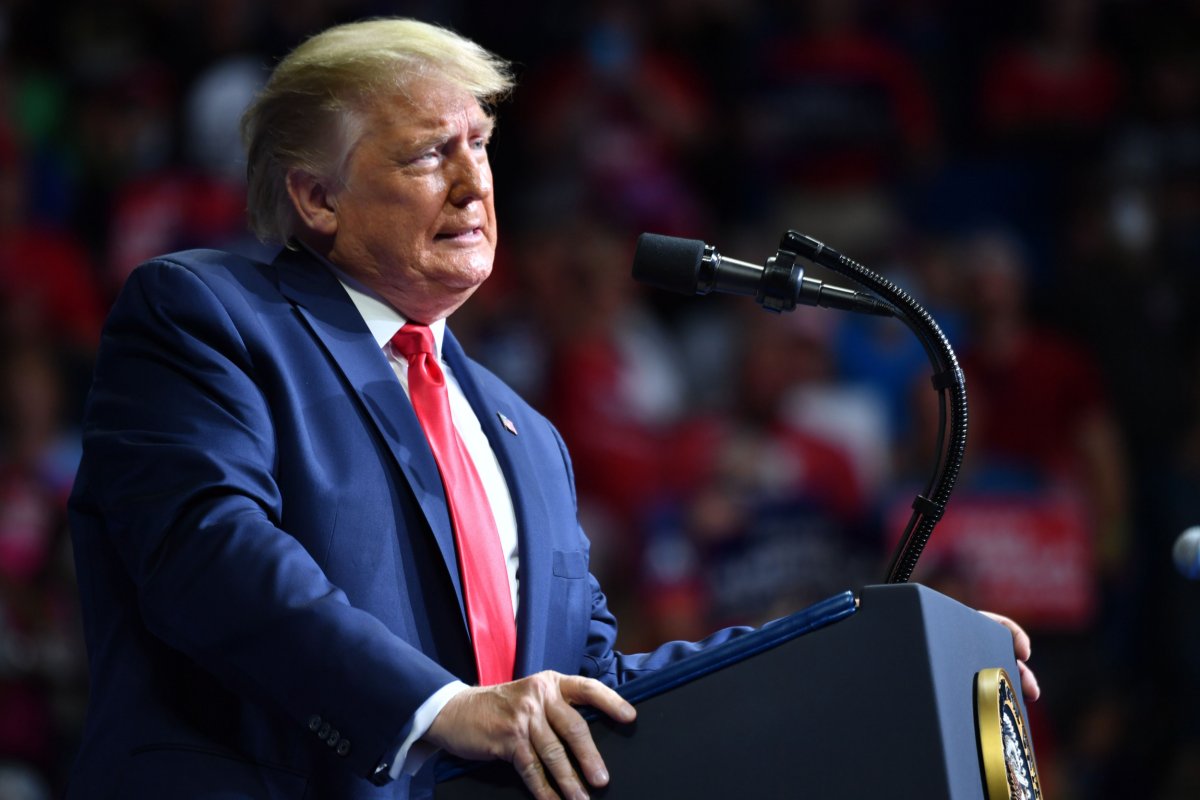The estate of late rock star Tom Petty has demanded that President Donald Trump no longer use his 1989 hit "I Won't Back Down" after it was played during the president's controversial Tulsa, Oklahoma, rally on Saturday.
Petty's daughters Adria and Annakim, as well as his first and second wives Jane and Dana, issued a statement on Twitter on Saturday explaining they had issued the Trump campaign with a cease-and-desist order regarding the song.
The Tulsa rally was Trump's first since the coronavirus pandemic forced the campaign to cancel mass gatherings, which until the COVID-19 outbreak offered the president spaces to unload his long list of grievances and whip up his base for much-needed campaign momentum.
The campaign faced criticism for holding the rally—which drew far fewer people than expected—despite reported warnings from the administration's coronavirus taskforce that it was not safe to do so.
Attendees were asked to sign waiver forms in case they contracted COVID-19 at the event, while Black Lives Matter protesters held demonstrations nearby despite Trump's threats against them.
Petty's estate condemned the rally, saying the singer "would never want a song of his used for a campaign of hate. He liked to bring people together." It added that Petty and his family "firmly stand against racism and discrimination of any kind."
"Tom wrote this song for the underdog, for the common man and for EVERYONE," the statement read. "We want to make it clear that we believe everyone is free to vote as they like, think as they like, but the Petty family doesn't stand for this. We believe in America, we believe in democracy. But Donald Trump isn't representing the noble ideals of either."
"We would hate for fans that are marginalized by this administration to think we were complicit in this usage," the statement explained. "Concurrently, we have issued an official cease and desist notice to the Trump campaign."
Newsweek has contacted the Trump campaign to request comment on the cease-and-desist notice from the Petty estate.
The president has previously been attacked by other artists for using their music without their permission to support his campaign. Earlier this month, the Village People ordered Trump to stop using their "YMCA" and "Macho Man" songs at his events.
Victor Willis, vocalist and co-founder of the group, announced the decision on Facebook following civil unrest in Washington, D.C. over George Floyd's death, and specifically the clearing of peaceful protesters from Lafayette Square with batons, tear gas and explosive devices so Trump could take photos posing outside a nearby vandalized church.
The Village People had given permission for Trump to use their songs in February, but after the Lafayette Square incident, Willis wrote: "Sorry, but I can no longer look the other way."
Other stars who have banned Trump from using their music include Pharrell Williams, whose team issued a statement after the president used the hit song "Happy" at one of his rallies soon after the Tree of Life synagogue shooting in Pittsburgh in 2018.
"There was nothing 'happy' about the tragedy inflicted upon our country on Saturday and no permission was granted for your use of this song for this purpose," the statement said. "Pharrell has not, and will not, grant you permission to publicly perform or otherwise broadcast or disseminate any of his music."
Rock icon Bruce Springsteen even wrote his own anti-Trump song after the then-presidential hopeful used "Born in the USA" during rallies on the campaign trail. "The Boss" is a prominent critic of Trump, and this week branded the administration's COVID-19 response "a national disgrace" and told the president to "put on a f****** mask."

Uncommon Knowledge
Newsweek is committed to challenging conventional wisdom and finding connections in the search for common ground.
Newsweek is committed to challenging conventional wisdom and finding connections in the search for common ground.
About the writer
David Brennan is Newsweek's Diplomatic Correspondent covering world politics and conflicts from London with a focus on NATO, the European ... Read more
To read how Newsweek uses AI as a newsroom tool, Click here.






